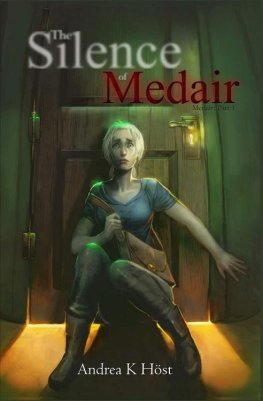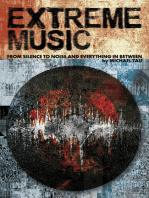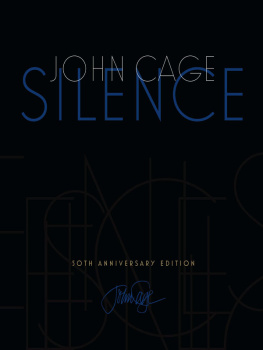Andrea Bocelli - The Music of Silence: New Edition
Here you can read online Andrea Bocelli - The Music of Silence: New Edition full text of the book (entire story) in english for free. Download pdf and epub, get meaning, cover and reviews about this ebook. year: 2011, publisher: Amadeus Press, genre: Non-fiction. Description of the work, (preface) as well as reviews are available. Best literature library LitArk.com created for fans of good reading and offers a wide selection of genres:
Romance novel
Science fiction
Adventure
Detective
Science
History
Home and family
Prose
Art
Politics
Computer
Non-fiction
Religion
Business
Children
Humor
Choose a favorite category and find really read worthwhile books. Enjoy immersion in the world of imagination, feel the emotions of the characters or learn something new for yourself, make an fascinating discovery.

- Book:The Music of Silence: New Edition
- Author:
- Publisher:Amadeus Press
- Genre:
- Year:2011
- Rating:3 / 5
- Favourites:Add to favourites
- Your mark:
- 60
- 1
- 2
- 3
- 4
- 5
The Music of Silence: New Edition: summary, description and annotation
We offer to read an annotation, description, summary or preface (depends on what the author of the book "The Music of Silence: New Edition" wrote himself). If you haven't found the necessary information about the book — write in the comments, we will try to find it.
The Music of Silence: New Edition — read online for free the complete book (whole text) full work
Below is the text of the book, divided by pages. System saving the place of the last page read, allows you to conveniently read the book "The Music of Silence: New Edition" online for free, without having to search again every time where you left off. Put a bookmark, and you can go to the page where you finished reading at any time.
Font size:
Interval:
Bookmark:

Translated from the Italian by
Consuelo Bixio Hackney

I feel a slight but undeniable tinge of embarrassment at the prospect of trying my hand once more, after such a long time, at the writer's craft, an activity to which I had dedicated many pleasurable hours in my youth.
My embarrassment stems mostly from the lack of any justification or pretext for such an endeavour; at that time my writing was almost entirely confined to school assignments, although occasionally I would write letters to distant friends, compose small poems, or indulge in other similar adolescent pursuits.
My intention now - if this can be a sufficient excuse for a man of my age to suddenly take up the pen - is merely to use some of my free time, to flee from the perils of idleness, and to tell the story of a simple life.
I confess that my main worry is not so much that the unfortunate reader might soon yawn over these poor scribbled pages. He can choose to put the book down at any time and not give it another thought. Instead it is that I feel myself observed by two eyes that read my thoughts while I write. They are the eyes of an old man with a kind face, an understanding expression, and that hint of a smile of one who is so familiar with the human comedy as to react to its vicissitudes with a sense of weariness and detachment. It is no longer possible to read the face of such a fellow whose passions have been extinguished forever by the inexorable passage of time and by the tenacious strength of his intellect. And yet that serene face, illuminated perhaps by the fire of ideas, seems to judge me severely. Beneath that gaze I feel ridiculous and intimidated and realise that I am incapable of doing anything, while only a moment ago I was presumptuous and deluded like those students who believe themselves to be custodians of absolute truths merely on the strength of a few philosophical notions they picked up at school. With the passing of time I seem to detect a touch of irony crossing the features of the old man. So then I ask myself: why is he not indulgent with me as he is with everyone else? Why does he take me so seriously?
The reader, who may by now have guessed the identity of the kind old inquisitor, will know that his implacable gaze is always there, looking over my shoulder, at every moment of the day, and is at the root of my every action or decision.
Here I am in one of my many cells: a room three metres square with two small armchairs, a basin, a mirror, a small table, and a fitted wardrobe. The space is illuminated by a single, small window looking out onto the street. It is two o'clock in the afternoon, and I will have to stay here until late this evening. In a while they will come and call me for a rehearsal, after that for make-up; they will bring me some water, a cup of coffee, the usual things. And so it is to trick time into passing that I begin this story. The computer is on. Now all I need is a subject.
I feel the need to detach myself from the task, but it is hard to do. I pace up and down the room in search of memories, feelings of nostalgia, and affection for distant people and places, and suddenly a small boy in shorts makes his way into my thoughts. He is thin as a rake with sinewy, slightly bandy legs covered in cuts and bruises. He has pitch-black hair, regular features, and a cheeky smart-aleck expression which could be more or less likeable depending on your point of view. If you don't mind I will talk to you about him because I know him well enough to allow myself free rein to comment on, or even judge, every aspect of his life, his ideas, and his most important decisions, and I can do this serenely with the benefit of hindsight.
I think I can safely describe him as a normal young boy, even if he is a little out of the ordinary as a result of a life which was also somewhat uncommon for certain reasons which are by now quite well known. I therefore refer to his being normal in the sense that he presented a more or less equal measure of virtues and defects, and I also say normal in spite of a rather serious physical impairment, about which I will rather reluctantly but necessarily have to say something. I will do so but only after having given a name to the protagonist of this story.
As one name is as good as another I will call him Amos. This was the name of a man towards whom I hold a deep and infinite debt of gratitude and to whom I owe much of what little I know. It is his way of approaching life that I have attempted, with meagre success, to use to mould my own. It is also the name of one of the minor prophets: perhaps this is another reason why I like it and why it seems an appropriate name for a young lad who, as I was about to explain, had limited sight until the age of twelve, when he lost his sight completely as a result of an unfortunate mishap. On that occasion it took a good hour or so to spill all his tears of fear and dismay and a full week to get used to his new circumstance. After that, I would say, Amos put it all behind him, and in doing so he was also able to help his friends and relations to forget about it too. And this is all that needs to be said on the matter.
Instead, when it comes to describing Amos's character, it is necessary to be much more specific to allow the reader to judge freely whether, or to what degree, it may have influenced his destiny.
His mother frequently and tirelessly describes the difficulties she faced in bringing up her vivacious and impulsive first-born son. "You couldn't look away for a second without him getting up to one of his tricks!" she says. "He always loved taking risks and the sense of danger. One day I looked for him and he wasn't there. I called and got no answer. I looked up and saw him standing on the window-sill outside my bedroom window. We lived on the second floor and he was not yet five years old. But to help you understand what I went through I will tell you this story." And so she continues in her Tuscan accent, accompanied by her large gestures and great agitation. "One morning I was walking along a wide avenue in the centre of Turin, holding Amos by the hand and looking for a tram stop. I stopped at the first one I found and was just distracted for a moment while I looked at a shop window. When I turned round I felt my blood run cold. My baby was gone. Desperate, I looked everywhere ... he was nowhere to be seen. I called out. There was no reply! I don't know what made me look upwards but I no longer knew where to look... and would you believe it... there he was. He had climbed up to the top of the post at the tram stop... "
"But wait! That's not the end of it!" she continues, interrupting her interlocutor's gasps of astonishment. "As he was not a good eater from the start, I would have to chase him all over the place, holding his bowl of soup in order to get a spoonful into his mouth ... on the tractor, on the workers' motor scooters ... everywhere!"
If the listener displays sufficient interest in her story, Amos's mother, Edi, visibly pleased, indefatigably adorns her monologue with even more elaborate detail which, while generally true, barring a few exceptions resulting from her irrepressible love of the dramatic and the paradoxical, does not always benefit the economy of the narrative.
Font size:
Interval:
Bookmark:
Similar books «The Music of Silence: New Edition»
Look at similar books to The Music of Silence: New Edition. We have selected literature similar in name and meaning in the hope of providing readers with more options to find new, interesting, not yet read works.
Discussion, reviews of the book The Music of Silence: New Edition and just readers' own opinions. Leave your comments, write what you think about the work, its meaning or the main characters. Specify what exactly you liked and what you didn't like, and why you think so.








